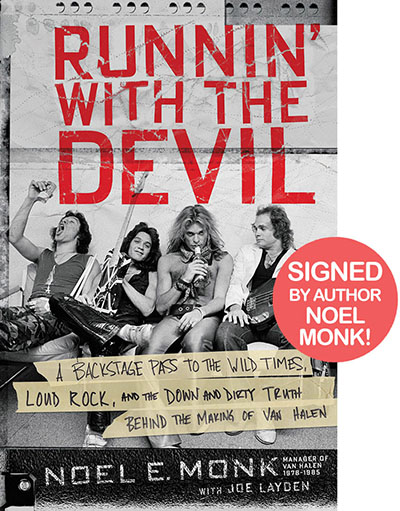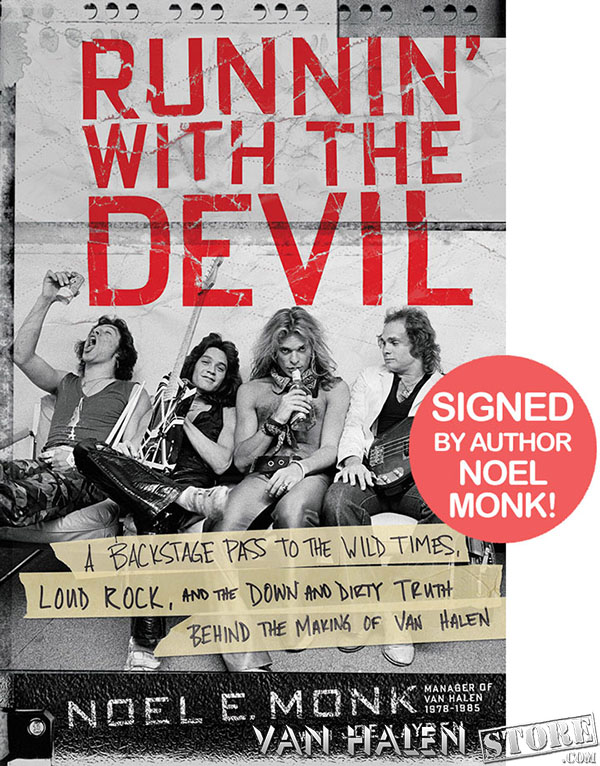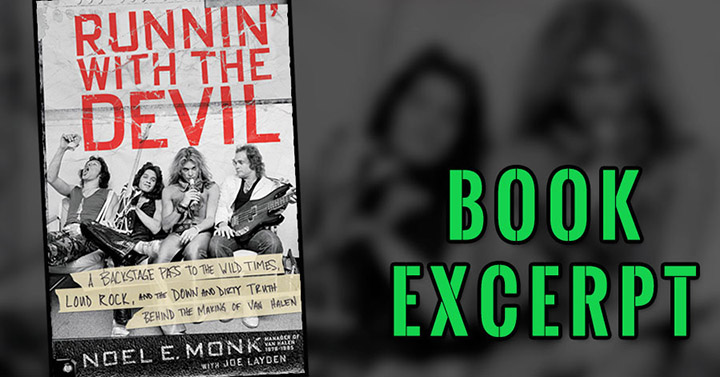
Can’t wait for a taste what’s in Van Halen manager Noel Monk’s forthcoming book? Check out the entire prologue now – exclusively on the Van Halen News Desk!
Runnin’ with the Devil: A Backstage Pass to the Wild Times, Loud Rock, and the Down and Dirty Truth Behind the Making of Van Halen is being released in next week, on June 13th! It’ the new tell-all book written by Noel Monk, Van Halen manager from 1978-1985.
Enjoy the Prologue!
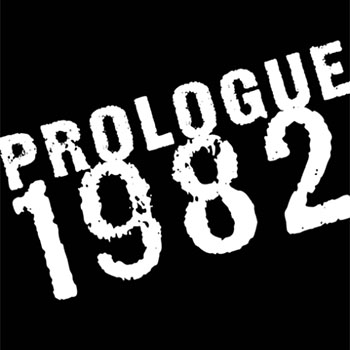
As the boys in the band descend from their limo, the smell of sex hangs in the air.
It grabs them by the nose, by the crotch, and yanks them forward, through a throbbing crowd of early arrivals, young girls mostly (but not exclusively), screaming and pleading, doing anything to get noticed and, perhaps, later in the night when the show is over, gain access to the inner sanctum where the real party begins. The boys pretend not to notice—by this point, roughly four years into a spectacular seven-year run during which they will evolve into the most popular band in rock—they’ve become accustomed to the adulation, and the perks that come with it. For David Lee Roth, brothers Edward Van Halen and Alex Van Halen, and Michael Anthony—a quartet of Southern California buddies who started out as a backyard party band before ascending to multiplatinum superstar status as Van Halen, purveyors of a particularly palatable brand of pop-savvy heavy metal—this is as good as it gets. Right here, right now. In the midst of a tour that will take them across the Americas, to Europe, and eventually to East Asia, pushing an album that isn’t even one of their best, artistically or commercially. But maybe the definition of success isn’t just talent—maybe, instead, it’s securing your place in history as one of the best live bands in the business, complete with a devoted following, strong record sales, and a veritable avalanche of merchandising revenue.
Sure, you could argue that the band’s apex would come two years later, with the release of the brilliant LP 1984, and an accompanying megatour that made Van Halen a household name and among the first true superstars of the music video era. But I was there and I know differently. I was with the band when they started to break—first as their road manager and then as their manager—and I’d seen them through it all, enjoying the ride and loving just about every minute of it. By ’84, Van Halen, the band I loved and helped guide to fruition, was on life support, though not many people realized it. They saw the sold-out arenas and the platinum-selling album (and singles) and presumed everything was okay. Diamond Dave could still jump off the drum riser and deliver high kicks like an Olympic gymnast; Eddie still had the fastest fretwork in the business, routinely burning through blistering guitar solos that begged comparisons to Hendrix and B. B. King and just about any other legendary guitar player whose name you’d care to invoke. They had the world by the balls, these guys.
And then they loosened their grip.
Even as 1984 racked up sales and critical acclaim, and while the band was playing one sold-out show after another, the foundation on which the band had been constructed was beginning to come apart. Well, not really “beginning”—it had been crumbling for some time. By the middle of 1984 (the year, as well as the tour), Van Halen was a band divided—a victim of disputes both petty and legitimate. Long-simmering artistic differences (to say nothing of personality quirks) between Eddie and David had reached the boiling point.
Drug and alcohol use in the band had escalated into out-right abuse. Love and brotherhood and the simple and time- honored adolescent dream of putting together a band with the hopes of getting laid and making a few bucks had been replaced by bitterness, complacency, and at times hatred. The tour itself was incredibly successful—which was a good thing, considering that we were otherwise hemorrhaging money. The fact was that we were trapped in a labyrinth of our own design, filled with tons of working parts, crew members, and flashy sets that threatened to swallow us whole, had it not been for one simple truth: Van Halen was fucking unsinkable. Or so we thought. Whatever we were, we were good. Not only did we break even—against all odds, we actually made money.
Being the life of the party isn’t really worth it if you’re not having a good time, though—and that was the problem. By ’84 the pleasurable days of soaking up life on the road, traveling the world, and living for the music were long gone. The band was still playing their hearts out to adoring fans, but once the show was over and the crowd began to dissipate, the truth set in: Van Halen wasn’t having fun anymore. By mid-1984 Van Halen was a glossy but depressed replica of its former self, meeting contractual obligations with little joy, and its four members typically went their separate ways when the lights were dimmed and the trucks loaded up.
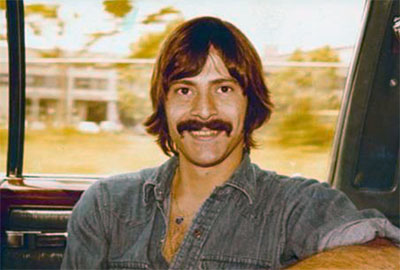 I was in the middle of all this, often serving as de facto referee, until eventually I was shown the door. So I know for a fact that while 1984 might seem like the greatest year in the life of Van Halen, it really wasn’t. You want a snapshot of the peak, a backstage pass to when the boys were at their most hedonistic and creative? Well, then you have to go back a little further. Why not ’82?
I was in the middle of all this, often serving as de facto referee, until eventually I was shown the door. So I know for a fact that while 1984 might seem like the greatest year in the life of Van Halen, it really wasn’t. You want a snapshot of the peak, a backstage pass to when the boys were at their most hedonistic and creative? Well, then you have to go back a little further. Why not ’82?
Let’s say we’re arriving at the show. There’s an overall pungency to the backstage area, a weird concoction of smells that can be challenging to separate and identify. The first thing that hits you is fumes: it’s like walking into an auto repair shop or a gas station. Take the typical 15,000-seat arena in Portland or Pittsburgh, or the Checkerdome in St. Louis. It really doesn’t matter—they’re all the same. At the back of each you will find a ramp for the loading and unloading of equipment. At the base of the ramp is a forty-four-foot semi . . . with a half dozen others right behind it, awaiting their turn, all belching noxious fumes into the stale air. A thick haze of smoke and exhaust settles over the entire area. It reminds one of flying into LAX on a nice day. You know how that goes. As you get closer to the ground, the sky thickens and changes hue, from clear blue to vaguely pink, and eventually to something resembling sludge when you’re a couple thousand feet above it.
The backstage area on concert day is layered that way. Outside you’ve got the trucks and the sweat-covered roadies. And the groupies. Oh, yes, the tonic for the troops. The girls give off an overpowering scent—not just cheap perfume, but of sex, sweat, and need, as well. It’s intangible, almost, but you can sense it nonetheless: the smell of desire, and the overpowering urge to let go. Drink a bottle of booze, pop a couple ’ludes, smoke a joint or two (or ten), and see where the night takes you. Maybe the road leads nowhere; maybe it leads to a glimpse behind the curtain, to an evening (or at least a few feverish sweat-soaked minutes) of carnal pleasure with a member of the band. Failing that, you settle for a member of the crew or support staff. Maybe you even go home to your boyfriend and climb into the sack while visions of David Lee Roth dance in your head. At a Van Halen concert, the yearning is palpable, and it comes across as an intoxicating smell, like patchouli oil, drifting through the doors and into the back- stage area itself.
As the hour of the show approaches, you become keenly aware of an increase in energy. It isn’t just noise—although there is that—but something you can feel. The building almost seems to come to life.
When I walk through the back door the band is already there—Edward with his guitar in hand (he never goes any- where without it; he even showed up to a crime scene with it once); soft-spoken Michael, Van Halen’s Everyman, just sort of standing around (bass nowhere in sight); David, ever the persnickety showman, giving detailed instructions to the sound guy (“When I get to the end of ‘Atomic Punk’ and I say, ‘Let the show go on and on,’ put an echo on that part, okay?”); Alex sitting backward on a chair, rapping at the backrest with two drumsticks, his beady eyes like two scanners, tracking what- ever “talent” comes within range. As a young, attractive member of the catering staff puts a plate of chicken wings on the buffet table, Alex ceases drumming and playfully grabs one of the woman’s thighs. He smiles; she giggles and swats his hand away, and goes on with her work, seemingly unfazed. But I have a feeling she has a pretty good poker face—or maybe she is simply used to the unwanted attention that comes with catering for rock bands. What can you say? Sexual harassment in one walk of life is merely harmless banter in the world of rock. Times have changed, of course, but thirty-five years ago? Well, you had to expect a little caveman from your rock star. These guys were conditioned to believe that just about every female who crossed their path was a potential—and potentially eager—playmate. That’s rock ’n’ roll, baby. It’s not just about the music. It’s about sliding back down the slippery pole of evolution.
As we move farther into the arena, away from the loading dock, the smells begin to change. The scent of petroleum gives way to a mix of food and drugs. Chili and chicken one second, alcohol and a combination of weed and cigarette smoke the next. Back then, everyone smoked—your mom, your sister, your weird uncle with the lazy eye, the quack charging you $150 an hour to help you quit. You name it, they smoked it, and so a fog hangs in the air.
Listen closely and you can hear the persistent sound of sniffing. Is there a bug going around? Allergies, perhaps? Or just the soundtrack of several dozen people snorting cocaine and other inhalants? Take your pick. And remember, this is the eighties; this is rock ’n’ roll.
After eating and flirting with a few groupies who have already been granted backstage access, the boys begin moving toward their dressing room.
“Where the fuck are we again?” Edward yells. “Lubbock,” someone responds.
“Lubbock, Texas?” Edward says.
“No, Lubbock, Iceland, you dumb fuck.”
“Nah, that was three days ago,” Alex chimes in.
David, meanwhile, shouts out to a passing groupie. “Hey, sweet pea. You gonna be here after the show for Dave? Huh? Maybe we’ll have a little rendezvous.”
The girl laughs and smiles. Again, this appears not to be an unwelcome advance.
Soon the boys are behind closed doors, getting dressed, pre- paring for the night’s work. The easy camaraderie and playful repartee are replaced by the sounds of four young musicians putting on their game faces. It’s an appropriate metaphor, since the “dressing room” is really just a locker room with a few extra curtains thrown up. Hockey one night, Van Halen the next. If you’re standing nearby, you can hear them swearing and yelling:
“Where’s my fucking shirt!?”
The odor of the arena merges with their voices, and you can feel the anticipation building for the show.
Me? I’m feeling it as well, although I’m anticipating not just the show but also the rush of adrenaline that comes with the possibility of a little of the old ultraviolence: fun things like slamming the head of a merchandise bootlegger against a car door. Part of my night is always devoted to this sort of activity (accompanied by two or three members of the road crew, and a bodyguard; I’m not stupid)—it’s all part of the job of protecting and promoting the Van Halen brand.
Speaking of promoters, in walks the man behind this particular show at this particular venue. He shall remain nameless, because there is nothing unique about him. He smells of Vitalis or Brylcreem, slathered on so heavily that the scent arrives about thirty seconds before he does. In the dressing room, he fawns over the boys (particularly David and Edward), but he won’t even look me in the eye. This guy is fucking us over eight ways from Sunday—assigning stagehands who don’t exist, charging me for labor that never happened, tripling the catering costs, and generally padding the bill in every way possible. He’s sweating and sniffing as he extends a nicotine-stained hand—first to the boys and then to myself. I not so politely decline. Why is it that every single promoter in every part of the fucking country seems to have a cold? And why are they always so eager to share it? Then again, maybe it’s not a cold; maybe it’s just that the promoter is fond of coke. A lot of promoters, while doling out said coke, would also pass around their own personal and oftentimes bloody c-note—complete with whatever strain of hepatitis happened to be going around at the time.
God knows they’re only too happy to make sure the band is well oiled and happy. Alcohol, weed, coke—it’s all there for the taking. Hell, most of these guys would give us heroin if we wanted it, but that’s not our bag. Never was.
As showtime approaches I walk to the stage area and peer between the curtains. Holy shit. An arena that was empty and quiet just a few hours earlier is now packed to the rafters with fifteen thousand fans—kids, mostly—lighting joints, drinking beer, stomping their feet, and clapping their hands in unison. The lights go down. A roar rises from the crowd like thunder as the boys approach the stage and a single spot- light trains itself on Rudy Leiren, whose job it is to introduce the band.
“Ladies and gentlemen . . . here is . . . THE MIGHTY VAN HALEN!!”
Just when you think it can’t possibly get any louder, the band hits the stage, and it does get louder. Much louder. The crowd surges forward, filling every inch of space around the stage, and testing both the patience and physical strength of the security staff. And then the show finally begins. David struts out onto the twelve-foot runway that extends into the audience. It’s known as an “ego ramp” because, well, you need a big fucking ego to walk twelve feet out into an audience of fifteen thousand screaming, inebriated rock ’n’ roll fans.
Ego is not an issue with David. He never lacked confidence, not even when Van Halen was strictly a backyard band. Now, as the frontman for one of the biggest bands in the world? David is right at home.
“I want to hear you make some noise!” he shouts, holding the mic out to the audience. The response is immediate and overwhelming, an ear-splitting roar. David smiles and tosses his head back, his mane briefly covering his face. Within a few more years the relentless creep of male pattern baldness will rob Dave of this signature look and, simultaneously, his youth. If you look closely you can see it even now, but he does a masterful job of mitigating the effects. He looks out over the sea of fans, roughly 60 percent of them women. Some have already removed their tops to gain attention. David smiles again.
“I see that rock ’n’ roll ain’t the only thing that’s big in this part of the country!”
He begins bouncing up and down, then saunters from one end of the stage to the other, like a king about to address his subjects.
“Nobody rules the streets at night like me!” he shouts. “The Atomic Punk! I’m the one you want!”
And then it’s on, as the band shifts into high gear. There’s Edward at one end of the stage, his fingers racing over the fretboard with lightning speed and dexterity, his thin smile betraying just how much he loves what he does, and how at home he feels with a guitar in hand. At the other end of the stage is Michael Anthony, a serviceable bass player and a sweet guy whose greatest asset is an uncanny ability to provide backing vocals and harmony. His limited skill as an instrumentalist is virtually unnoticeable because of the virtuosity of Edward and the showmanship of David. All eyes are on Dave and his black leather pants and vest, a thicket of chest hair protruding from beneath it as he jumps around to the beat of Alex’s drums. He commands the attention of every single person in the auditorium.
In the middle of one of Eddie’s scorching solos, David leaps off the drum riser, some ten feet in the air. He’s worked his ass off to perfect this move, and even sustained a few injuries along the way, but it’s second nature to him now. He is in prime physical condition, twenty-seven years old and not yet ravaged by time or drugs or alcohol. I’ve had my bad moments with Dave and I’ll have more in the future, but as I watch him dance and spin across the stage, I have to admit that the guy puts on one hell of a show. David always knew what he wanted. And what he wanted, more than anything else, was to be famous.
Mission accomplished.
There is more free-verse patter, all kinds of crazy shit that David makes up on the spot. He is a car crash of pop culture iconography: part Borscht Belt standup comic, part Vegas troubadour, part heavy-metal samurai. The other guys laugh at his antics, and it occurs to me that, at least while they are onstage, everything is right in the world of Van Halen.
As Michael launches into the opening notes of “Runnin’ with the Devil,” and the crowd erupts en masse and begins headbanging to what has become one of the more recognizable riffs in the annals of rock, I find myself smiling. This is the moment, the one that makes it all worthwhile; a moment so pure and joyful—so quintessentially rock ’n’ roll—that I feel lucky to be a part of it. But I also can’t help but wonder: How long can it last?
Runnin’ with the Devil: A Backstage Pass to the Wild Times, Loud Rock, and the Down and Dirty Truth Behind the Making of Van Halen is being released next week, on June 13th!
Exclusive offer: Receive it SIGNED by former Van Halen manager, Noel Monk! Only through Van Halen Store. (Order here)
It’s the only Van Halen book chronicling the early years written by a member of the Van Halen camp. And by their manager, no less! A must-have!
Orders ship this week!
